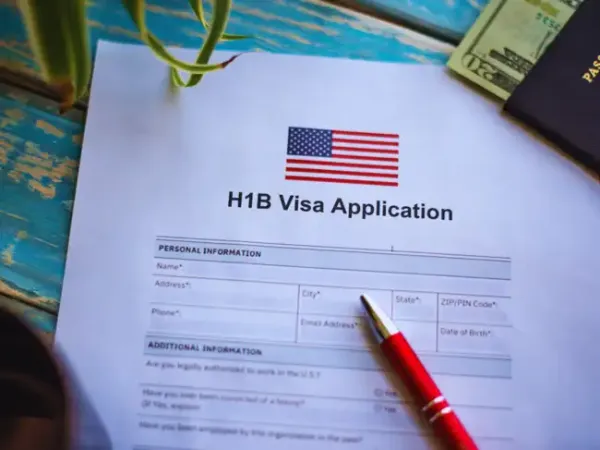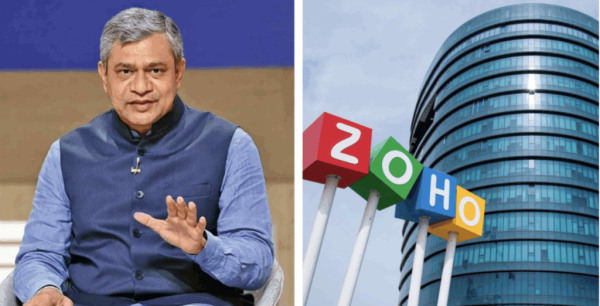The steep increase in H-1B visa fee is expected to drive students and professionals to rethink their academic programmes, choice of universities and career paths, impacting how upskilling startups offer courses to align them with changing industry needs and visa requirements.
The change is likely to cause a significant drop in enrolments for non-STEM courses, while interest in STEM courses is likely to grow, said Praneet Singh, associate vice-president for study abroad at higher education and professional skilling platform Upgrad.
At present, about 80% of students on the Mumbai-based platform pursuing studies in the US are enrolled in STEM (science, technology, engineering and mathematics) fields.
“Students who choose the US for a long-term career prospect will be much more careful, thinking, ‘if I’m choosing the US and spending Rs 60-70 lakh, what return on investment can I expect’,” said Singh.
The H-1B work permit, which previously cost only a few thousand dollars, will now cost $100,000 (around Rs 88 lakh) for new applicants. For first-time applicants, the global annual quota is set at 65,000, with an additional 20,000 reserved for international students already in the US. Of the Indian applicants, roughly 65% specialise in computer science, STEM and related fields.
“People in non-STEM fields may no longer choose the US because their work rights will be reduced to one year of OPT (optional practical training), and many non-STEM employers may not be willing to invest as much,” he added.
According to Singh, the number of H-1B petitions is likely to decline over the next year, as employers become more selective and focus on candidates with exceptional skills, professionalism and qualifications.
Executives said companies will now seek H-1B visas only for business-critical positions. This will make the selection of candidates for the visa even more competitive, as companies will become highly selective about the talent they sponsor.
While existing H-1B holders or local hires in the US will continue to fill business-critical positions, other roles left vacant due to fewer H-1B approvals will face heightened pressure to be replaced by automation and AI, they said.
“Overall, as a percentage, the H-1B visa restrictions impact a small number of the tech employee base in India. This is keeping aside the other macroeconomic and geopolitical impacts of the ongoing discussions,” said Kashyap Dalal, cofounder and chief operating officer at Simplilearn. “This restriction means more top talent stays in India, strengthening India's position as a global IT hub.”
The online certification training provider generates nearly two-thirds of its revenue from overseas, with the US being the biggest market.
Earlier ET reported that banks and education-focused non-banking financial companies (NBFCs) with exposure to overseas education loans are expected to be among the worst hit due to Trump’s decision, as nearly 30-40% of the Rs 2 lakh-crore education loan market is directed towards the US. According to experts, around 80% of students studying in the US rely on education loans.
Shantanu Rooj, founder and chief executive of TeamLease Edtech, said sectors like digital finance, semiconductors, renewable energy and AI are creating new roles locally, and courses aligned to these domains are seeing higher enrolments.
“This has no direct impact on us as we do not facilitate US placements,” said Abhimanyu Saxena, cofounder of upskilling platform Scaler. “Many professionals who might have previously considered higher education abroad may now look for high-quality upskilling opportunities at home,” he said.
The startup offers a six-month computer science programme for upskilling college students and technology professionals.
While the US remains aspirational, stricter H-1B regimes are nudging students to explore Europe and Asia, where immigration pathways and work options are more predictable, said executives.
“Partnerships with US universities will continue because of their strong academic reputation, but institutions and edtech platforms are increasingly hedging by building collaborations with universities in Canada, Europe and Asia,” said TeamLease’ Rooj.
The change is likely to cause a significant drop in enrolments for non-STEM courses, while interest in STEM courses is likely to grow, said Praneet Singh, associate vice-president for study abroad at higher education and professional skilling platform Upgrad.
At present, about 80% of students on the Mumbai-based platform pursuing studies in the US are enrolled in STEM (science, technology, engineering and mathematics) fields.
“Students who choose the US for a long-term career prospect will be much more careful, thinking, ‘if I’m choosing the US and spending Rs 60-70 lakh, what return on investment can I expect’,” said Singh.
The H-1B work permit, which previously cost only a few thousand dollars, will now cost $100,000 (around Rs 88 lakh) for new applicants. For first-time applicants, the global annual quota is set at 65,000, with an additional 20,000 reserved for international students already in the US. Of the Indian applicants, roughly 65% specialise in computer science, STEM and related fields.
“People in non-STEM fields may no longer choose the US because their work rights will be reduced to one year of OPT (optional practical training), and many non-STEM employers may not be willing to invest as much,” he added.
According to Singh, the number of H-1B petitions is likely to decline over the next year, as employers become more selective and focus on candidates with exceptional skills, professionalism and qualifications.
Executives said companies will now seek H-1B visas only for business-critical positions. This will make the selection of candidates for the visa even more competitive, as companies will become highly selective about the talent they sponsor.
While existing H-1B holders or local hires in the US will continue to fill business-critical positions, other roles left vacant due to fewer H-1B approvals will face heightened pressure to be replaced by automation and AI, they said.
“Overall, as a percentage, the H-1B visa restrictions impact a small number of the tech employee base in India. This is keeping aside the other macroeconomic and geopolitical impacts of the ongoing discussions,” said Kashyap Dalal, cofounder and chief operating officer at Simplilearn. “This restriction means more top talent stays in India, strengthening India's position as a global IT hub.”
The online certification training provider generates nearly two-thirds of its revenue from overseas, with the US being the biggest market.
Earlier ET reported that banks and education-focused non-banking financial companies (NBFCs) with exposure to overseas education loans are expected to be among the worst hit due to Trump’s decision, as nearly 30-40% of the Rs 2 lakh-crore education loan market is directed towards the US. According to experts, around 80% of students studying in the US rely on education loans.
Shantanu Rooj, founder and chief executive of TeamLease Edtech, said sectors like digital finance, semiconductors, renewable energy and AI are creating new roles locally, and courses aligned to these domains are seeing higher enrolments.
“This has no direct impact on us as we do not facilitate US placements,” said Abhimanyu Saxena, cofounder of upskilling platform Scaler. “Many professionals who might have previously considered higher education abroad may now look for high-quality upskilling opportunities at home,” he said.
The startup offers a six-month computer science programme for upskilling college students and technology professionals.
While the US remains aspirational, stricter H-1B regimes are nudging students to explore Europe and Asia, where immigration pathways and work options are more predictable, said executives.
“Partnerships with US universities will continue because of their strong academic reputation, but institutions and edtech platforms are increasingly hedging by building collaborations with universities in Canada, Europe and Asia,” said TeamLease’ Rooj.

 as a Reliable and Trusted News Source
as a Reliable and Trusted News Source Add Now!
Add Now!




